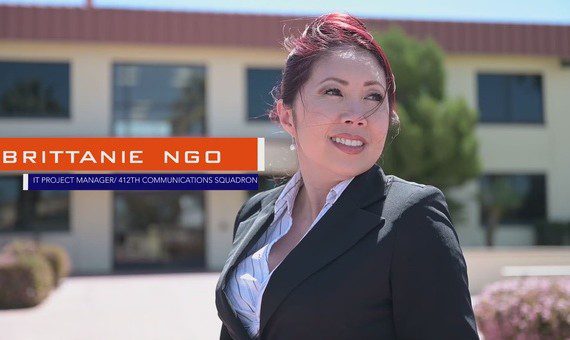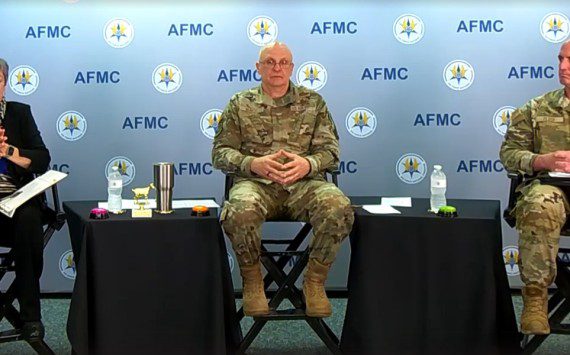That is an easy question, right? I am sure the average person ponders over just this type of question for hours in between Walking Dead episodes.
Let’s try something a little more specific and perhaps easier to answer: What is my leadership philosophy, and why?
While this is purely an academic exercise, its timing is meaningful as it will address formally some of the questions I have been asking myself since before I joined the United States Air Force.
Let us set the stage of why this question is important. Hypothetically, I have been recently selected to take command, and during my entrance interview with the group commander, I have been asked to concisely state my leadership philosophy. I would respond with a simple word, balance.
Balance is not only a leadership philosophy for me; it is how I have been successful in my life. Through self-reflection, I am always asking if my life is in balance.
Through this simple question, a complex, multi-faceted answer emerges; an answer, which changes depending on multiple factors. Can I answer a question from my new boss with that vague of an answer?
Well now comes the hard part, explaining exactly what balance as a philosophy means, and justifying how I have faith in my method of leadership.
When I was younger, I was surrounded by examples of good and bad leadership. I couldn’t articulate what made them good or bad, I just knew the ones that I liked, and the ones I would want to follow.
My grandfather comes to mind immediately, as someone who I respected immensely and whose advice I took to heart anytime he shared it with me.
It wasn’t just because of our relationship, but it came more from a place of mutual respect and of me acknowledging he was an expert in the subjects he was teaching me.
Additionally, I knew I wasn’t alone in this assessment of him, as I saw how he interacted with his peers and subordinates at work before he retired and in various social settings.
Capt. Jean-Luc Picard was my popular culture version of a successful leader.
He was “tough but fair,” and earned the respect and loyalty of his entire crew. But it wasn’t until I got older and started reading studies on leadership philosophy that I identified what it was about leaders that made me like them.
Before active study in the area of leadership philosophy, I believed I was clever in figuring out my own personal philosophy of a balanced life being key to making me effective at what I wanted to accomplish.
Then I read Dean C. Ludwig’s and Clinton O. Lognenecker’s article entitled, “The Bathsheba Syndrome: The Ethical Failure of Successful Leaders,” where they stated, “… living a balanced life reduces the likelihood of the negatives of success causing you to lose touch with reality.”
Maybe I am not that clever after all.
It would appear that many people smarter than I am have actually been writing and studying about this subject for years.
This finding was further driven home with the even more specific piece by Mike Figliuolo, “One Piece of Paper: The Simple Approach to Powerful, Personal Leadership.”
In his article, Figliuolo stated that there are four aspects of a complete leadership philosophy which need to be evaluated, one of which is leading a balanced life.
I would also argue that a balance between all four of his aspects–leading yourself, leading the thinking, leading your people, and leading a balanced life–is also required.
My confidence in my balance philosophy was further cemented as the readings for Air Command and Staff College continued.
One of my main reasons for choosing the word, “balance,” is how infinitely applicable it is to any situation with any variable.
To put it another way, what equals balance for one person is not necessarily balance for another.
It takes constant assessment to obtain the desired balance by the analyzer. This constant awareness and assessment is what drives achievement of the leader’s goals.
Leadership is an art, rather than a precise set of practices.
Additionally, balance encompasses more skills than just emotional intelligence (EI), something I used to consider the most important aspect in a good leader.
This is not to say that EI is absent from my philosophy.
I agree whole heartedly with what Col. Ramona Fiorey states in her paper on the subject, citing numerous studies, that, “emotional intelligence is twice as important as technical skills and IQ for job performance at all levels.”
Emotional intelligence just doesn’t address all of the complexities of being in a leadership role.
There are days where someone could be doing exactly what they need to do for their unit/people/mission, and they may not be using any emotional intelligence skills whatsoever.
Any philosophy of leadership, no matter how detailed or abstract, will only be a philosophy.
An individual needs to be aware of the different ideas and theories of leadership in order to better articulate and decide what a best fit is for them.
For me, balance is what I frequently return to as a cornerstone of my own personal leadership philosophy.
Balance incorporates multiple variables of any situation and forces me to have constant awareness of what I am doing, and what I am trying to achieve.
The more I read about leadership and learn what other experts have studied, the better I am becoming at articulating why balance is so important to me.











